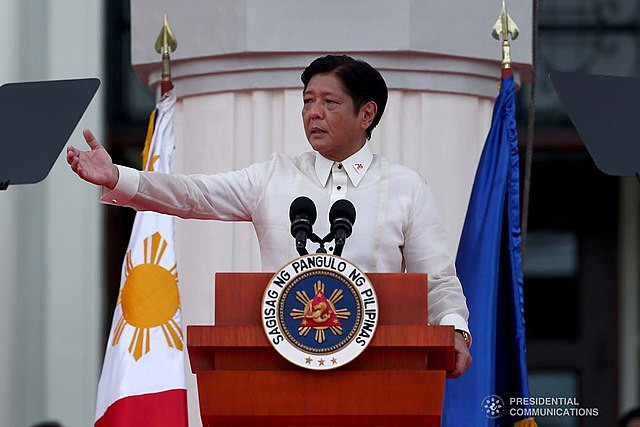The Philippines has expressed alarm after the Chinese coast guard violently confronted a Philippine supply convoy in the disputed South China Sea on Tuesday, allegedly leaving several Filipino crew members injured. The latest flare-up in the long-running territorial feud between Beijing and Manila occurred during a mission to bring fresh supplies and troops to a Philippine military outpost at Second Thomas Shoal, which lies within the Philippines' internationally recognized exclusive economic zone (EEZ).
According to reports, a blockading force of at least 26 Chinese ships, including coast guard and suspected militia vessels, moved to intercept the Philippine convoy. Two collisions ensued, and the Chinese coast guard trained its water cannons on a supply boat, causing minor injuries to four crew members.
Despite the incident, Philippine President Ferdinand Marcos Jr. said that now is not the time to invoke the country's defense treaty with the United States. "I do not think that it is a time or the reason to invoke the Mutual Defense Treaty," Marcos said Wednesday on the sidelines of an Association of Southeast Asian Nations summit in Melbourne, Australia. "However, we continue to view with great alarm this continuing dangerous maneuvers and dangerous actions that are being done against our seamen, our coast guard."
The U.S.-Philippine Mutual Defense Treaty states that each country will come to the other's aid in the event of an attack. However, it remains unclear what would constitute an attack in the current context, as Chinese maritime forces operate in the gray zone between peace and war.
Collin Koh, a maritime security expert with Singapore's Nanyang Technological University, told Newsweek that China appears to have intensified its gray zone approach, noting that Beijing deployed "water cannon at close range at the resupply boat." Koh predicted more serious clashes in the future due to intransigence from an emboldened Beijing and Manila under Marcos, who has sworn to never yield "one inch" of Philippine territory.
The incident was witnessed firsthand by two Associated Press journalists who were invited to join the trip aboard the Philippine coast guard ship BRP Sindangan. The journalists caught on video and camera how the Chinese ships shadowed, surrounded, and blocked the Philippine coast guard ships and supply boats carrying Filipino sailors to the disputed shoal.
Vice Adm. Alberto Carlos, the highest-ranking Filipino military commander overseeing the disputed waters, joined the trip to ensure that any confrontation would not spiral out of control. "That's very concerning and very worrisome," Carlos told reporters after witnessing the Chinese actions against the supply boat Unaizah Mae 4, which he was aboard.
The Philippines adopted a strategy last year of exposing China's increasingly assertive actions in the disputed sea by embedding journalists on its coast guard patrol ships. The "transparency campaign" aims to pressure China to abide by international law, including anti-collision regulations.
In response to the latest incident, China blamed the Philippines for the hostilities. "China has unwavering determination and will in safeguarding its legitimate rights. The Philippines' attempt of making infringements and provocations will not succeed," Ministry of Foreign Affairs spokesperson Mao Ning said Wednesday in Beijing.
The U.S. State Department spokesman Matthew Miller said the latest incidents demonstrated China's "reckless disregard for the safety of Filipinos and also for international law," adding that China was interfering with "lawful Philippine maritime operations."
As tensions continue to rise in the South China Sea, the international community is closely watching the situation, with concerns that the disputes could escalate into a larger conflict involving the United States and China. The Philippines, along with other claimants in the region, faces the challenge of asserting its territorial rights while navigating the complex geopolitical landscape and avoiding a direct confrontation with Beijing.





